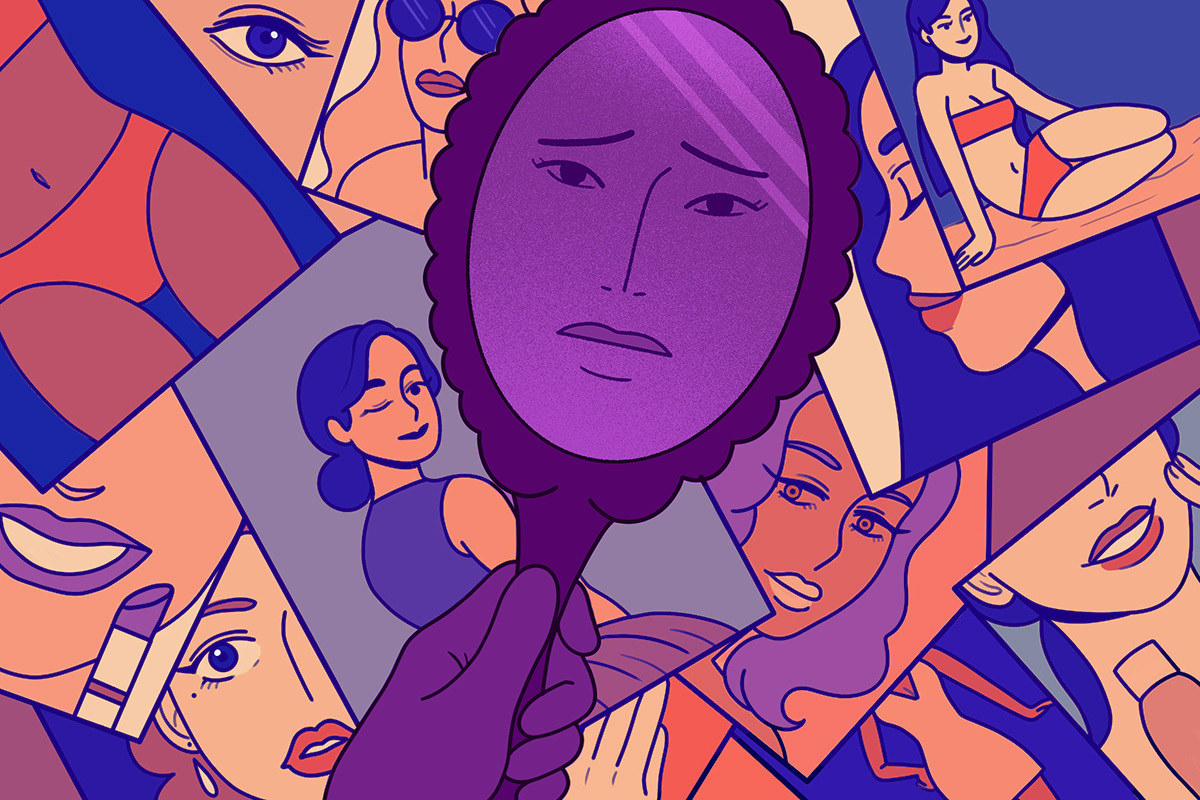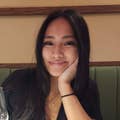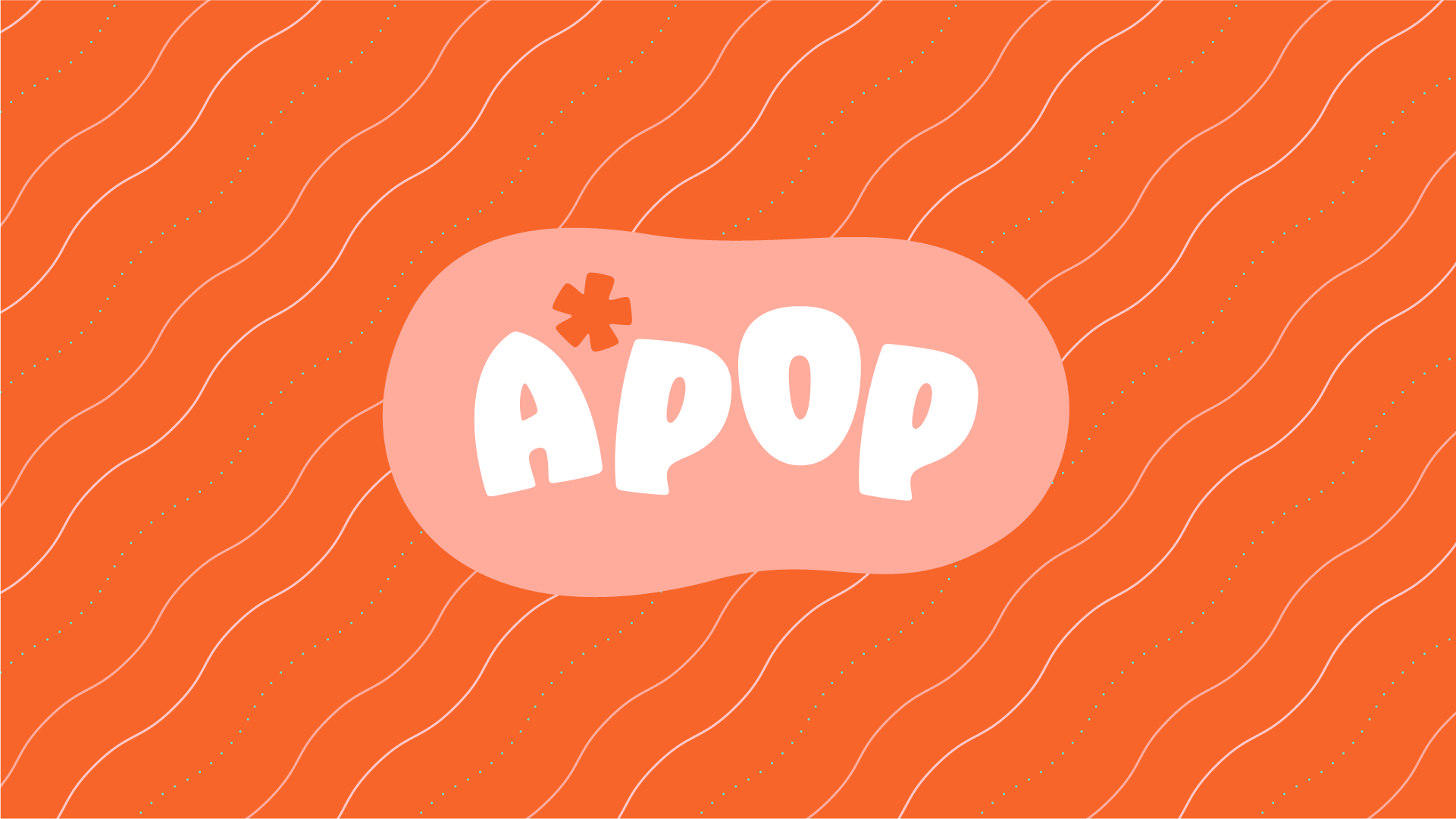Warning: There is a mention of an eating disorder.
Hi, everyone. I'm Jessica. As an Asian American woman, I have had experiences dealing with beauty standards within both Eastern and Western cultures.
It was only when I entered college that I was finally surrounded by people who looked like me. Finally, I thought I would be fully accepted as I was. But then I was exposed to the full force of Eastern beauty standards and just how high they are. Suddenly, I was staring at people that looked like me but...also didn't. It was no longer that I had no chance of being seen as beautiful in Western beauty, but that I needed to further change myself to fit the ideal standard in Eastern beauty.
But beauty standards are not a new topic of discussion. Many people have talked about issues like colorism, fatphobia, and unrealistic beauty narratives before.
Our community has so many different countries under its umbrella, and with it comes many people with beautiful, unique features.

So I reached out to our community on A*Pop, BuzzFeed's Asian and Pacific Islander identity brand, to ask how others have been affected by these unattainable beauty standards.
Many criticized beauty standards and talked about how they felt othered:
1.
@apopbf @jessicakuma_ there was a lot of pressure to downplay my “Asian” traits (ie round face, tan skin) and try to play up my “white” traits much more (like staying out of the sun, or even my parents putting whitening cream on if I got too dark) and it still makes me feel weird being tan as an adult
2. "Growing up in a predominantly Hispanic area, I always thought I wasn’t thin enough because I would see Chinese women as very thin and petite. I do have double eyelids and grew up knowing that was 'beautiful.'”
"When I visited Hong Kong as a 27-year-old, I was 'fat,' 'busty,' 'tall,' and everyone knew I was American before I even opened my mouth."
3.
@apopbf @jessicakuma_ there was fat shaming, regular haircuts to keep it short since my natural hair wasn’t straight, they had jokes and terms for if you were too dark AND too pale. by not upholding myself to these euro-centric standards, it felt like i didn’t look the way i was supposed to
4. "My insecurities with my appearance partially stem from being told I was fat as a child by relatives. However, I'm also affected by practical things. Clothes remind me that I don't fit into Eastern or Western beauty standards. As a woman of Chinese descent, I see other East Asian women my age with thin figures wearing pretty clothes. When trying to find clothing in Chinese sizes, the small shoulder and waist measurements remind me that I'm 'big' by Asian standards."
"In America, models are shown to be tall with the same thin waists but with curvy, hourglass figures. That doesn't hurt my self-esteem until I try to find clothing in American stores that are too long and not very flattering. It's upsetting how beauty standards affect such practical things like clothing, which thus affects my perception of my body."
5.
@jessicakuma_ When I was 16 I was looking at mascara at Target and some yt lady came up to me and said "sweetie thats not gonna fix your eyes" and if that doesn't scream Western beauty hostility I don't know what does.
A few touched upon how they had to unlearn these beauty standards:
6. "I grew up in a predominantly white town in the suburbs of Connecticut, and my childhood best friend was tall, leggy, and blonde with blue eyes. Back then as a teen, I wanted nothing more than to ditch my physical appearance and look like her because that's what was considered beautiful."
"Fortunately, I eventually came to the realization that my Chinese and Korean features make me feel beautiful, and that I didn't need to fit into Western beauty standards."
7. "I come from a majority white town where I could count the amount of POC in my graduating class on one hand. Growing up, I never felt 'pretty enough' because I did not look like my peers, who were all lighter and skinnier. At home, I was exposed to Filipino culture through Filipino media that my parents put on. Watching ASAP, Showtime, all of those shows gave me another perspective as to how I should look to be perceived as beautiful."
"And honestly, it wasn’t that much different than the Western beauty standards. Filipino media chose lighter-skinned, skinnier girls as their main characters, and anyone outside of that was the quirky side character. My exposure to Western and South Eastern (specifically Filipino) beauty standards definitely contributed to my lack of self-esteem growing up, but not until years after that did I get comfortable with knowing that I won’t always fit the standards and don’t actually ever need to."
8. "Well, Western beauty standards made me feel like I'm ugly since I have dark skin and curly hair. I also wished that I have lighter eye colors just so that I could look pretty."
"Malaysian beauty is no different as well. They always portray lighter-skinned women as beautiful and desirable while darker-skinned women [are portrayed] as inferior and hideous. Both these beauty standards made me internalize my self-hatred toward my ethnicity and my appearance, and it took me years until I unlearned them."
9. "I used to think that if I dressed like the white girls who went viral on Tumblr that I’d be 'iconic' and well liked. I contoured my nose for years and edited it to be more narrow for years."
"I just now, at 23, stopped because I realize my Filipino nose is indicative of my heritage and my bloodline. I shouldn’t change that to fit into a phenotypical standard that was invented to exclude me from what beauty is defined as."
10. "I’m Filipino-Thai-Italian. I don’t fit into any of their beauty standards, and I don’t fit into any Western beauty standards. I spent years changing my looks trying to fit in until I gave up."
"Whose happiness was I chasing, theirs or mine? Focusing on 'Do I like the way I look today?' brought me so much more peace than 'Does this look fit in?'"
Others spoke about the lack of representation:
11.
@apopbf @jessicakuma_ Representation (or lack thereof) had a huge role in shaping how I viewed myself - as a child I was mostly exposed to Eurocentric beauty standards or East Asian beauty. I could never see myself anywhere as a Fil-Am. I've only recently been able to see myself reflected in media.
12.
@apopbf @jessicakuma_ Growing up Filipino with naturally curly hair, I always felt different when all of my family members had straight hair. Filipino shampoo ads certainly didn't help. I wish I had the resources I have today on how to care for my hair and if properly cared for, it's just as beautiful
13.
@apopbf @jessicakuma_ Being monolid — it was very frustrating when the cut-crease eye shadow trend happened. I struggled with it and wished that I had a different set of eyes. When I found the eye-look that matched my set of eyes, I was so happy!!
Some individuals spoke about Eastern beauty standards and its effect on them:
14. "As an Indian, my mother always believed that we should be fairer and that fair skin meant superiority somehow. She made us drink and apply many things on our face to get fairer skin."
"I guess this has a lot to do with the British colonialism in India. But it is sad that this mentality hasn't changed even after so many years since our independence."
—Anonymous
15.
@jessicakuma_ "Eastern beauty" got me fantasizing about Chinese foot binding in middle school just so I could maybe be a petite Asain beauty like the size of my feet was my biggest hurdle 🙃
16. "Beauty standards always hit hardest at home. Relatives and family parties especially. I remember being told I was fat by parents and relatives as early as 6 years old. It’s super weird to think about. It definitely skewed my body image a lot when I was 10–12, being praised whenever I lost weight and being mocked by relatives whenever I gained it."
"By the time I was in high school, they’d gotten really bad; I was skipping meals, binging and purging, buying packs of gum after purging to hide the breath. I only really stopped when I had a strong, supportive friend group in college, which was really good for my mental health. For the most part, I stopped. I only relapsed with purging once my freshman year and once my junior year. Even then, it’s always kind of a struggle to keep checking in with yourself and make sure you treat yourself with respect."
—Anonymous

